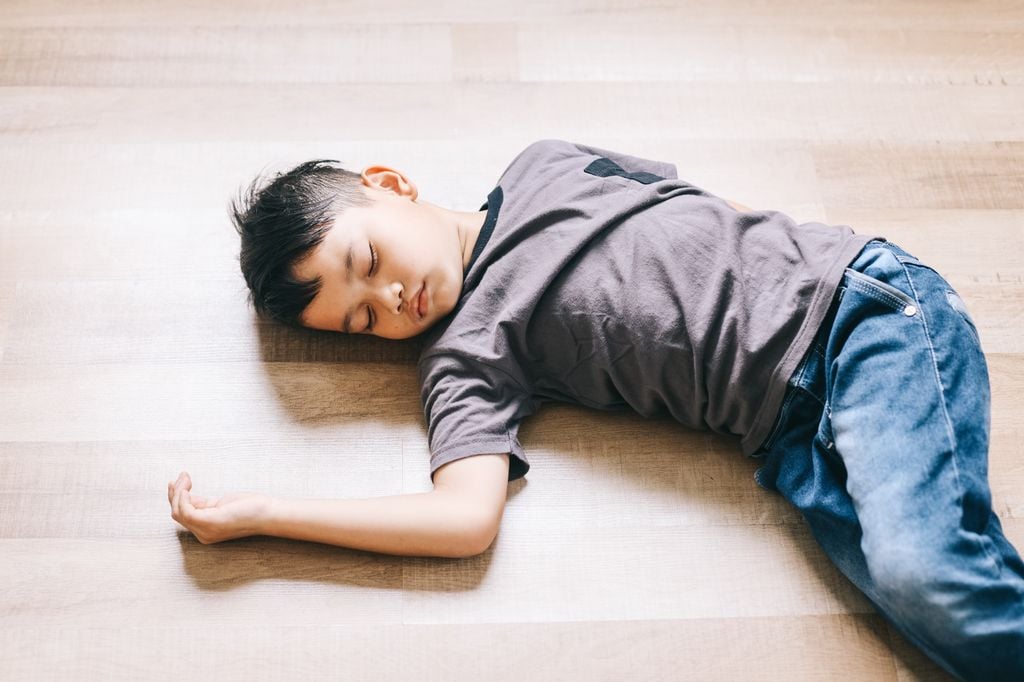Up to 15% of children will experience a fainting episode before the end of adolescence. In medical terms it is called syncope, and refers to a brief episode in which the child achieves rapid spontaneous recovery.
He Dr. Adrián García Ron is a child neurologist at Bmum Neurodesarrollo. We have spoken with him to clarify the causes of these faintings, how to act and when they can be an alarm signal.
Standing for a long time and physical or emotional stress can cause fainting, among many other causes.
Why do fainting occur in children?
The first thing to emphasize is that, although they can be very frightening to parents, syncope is usually benign. In most cases it is caused by alterations in vasomotor tone, which is responsible for maintaining blood pressure and blood flow to the organs by controlling the size of the blood vessels, as detailed by the specialist. Thus, these are the most frequent causes:
Vasovagal syncope (or neurocardiogenic syndrome)
This is the situation of common fainting, which occurs in more than half of the cases. “Typically It occurs after a triggering factor such as standing for a long time, stress (physical or emotional) or reflex stimuli such as swallowing, urination or defecation, hair combing… etc., that trigger an exaggerated reaction of the vasomotor reflex, temporarily decreasing brain perfusion,” comments the neurologist.
Before suffering syncope there are usually symptoms that they anticipate it, such as “feeling dizzy, visual changes (decreased acuity, tunnel vision or double vision), sweating, nausea, paleness… which end if we do not stop it in a loss of consciousness or fainting.
Syncope due to hyperventilation
It generally occurs in adolescents who, in an episode of anxiety, begin to breathe quickly and deeply.
Orthostatic hypotension
It is produced at changing position suddenly, for example from sitting or lying down to stand up. “It is related to an abrupt drop in blood pressure that leads to loss of consciousness.”
Sob spasms in infants
They occur between six months and three years. The baby, after an episode of tantrum, frustration or crying, stops breathing, becomes ‘deprived’ and if you do not react, due to the low amount of oxygen reaching the brain, you may lose consciousness.
When can it warn of something more serious?
Although most fainting spells are unimportant, “syncope can also occur as a result of more serious illness (usually cardiac) with potential for sudden death,” warns Dr. García Ron. These are the main warning signs to take into account:
“These episodes are usually related to heart problems,” he points out. To evaluate the severity of the fainting, it is necessary to assess the triggering factors, take into account the patient’s history, analyze the previous warning signs and take into account the age, duration of the episode, frequency…
What tests are done to rule out more serious problems after fainting?
“The majority of syncope can be diagnosed only by clinical history and do not require complementary examinations. We only perform them if we suspect another pathology or if we think that its origin is cardiac or neurological,” highlights the bmum.es neurologist.
The basic tests that are usually performed are laboratory tests and an electrocardiogram. “If we suspect epilepsy or a neurological condition, we usually request electroencephalogram or brain imaging tests, and evaluation by the cardiologist (echocardiography…) if we suspect cardiac pathology,” he adds.
When a child faints, turn his head to the side and do not put anything in his mouth.
How to act when a child faints
Despite the nervousness and worry that may arise when a child faints, you must act by following specific steps and remaining calm, as recommended by Dr. Adrián García Ron:
- Make sure your safety: Place the child in a safe place and loosen his or her clothing.
- Raise your legs: This helps improve blood flow to the brain.
- Turns his head to the side: To prevent the tongue from blocking the passage of air (never put something in your mouth).
- Monitor vital signs, if possible: Take your pulse, watch your breathing…
- Sometimes, encourage him to cough or put cool water on his face It can help recover vasomotor tone and stop the episode.
- Do not give anything by mouth until you are completely recovered.

